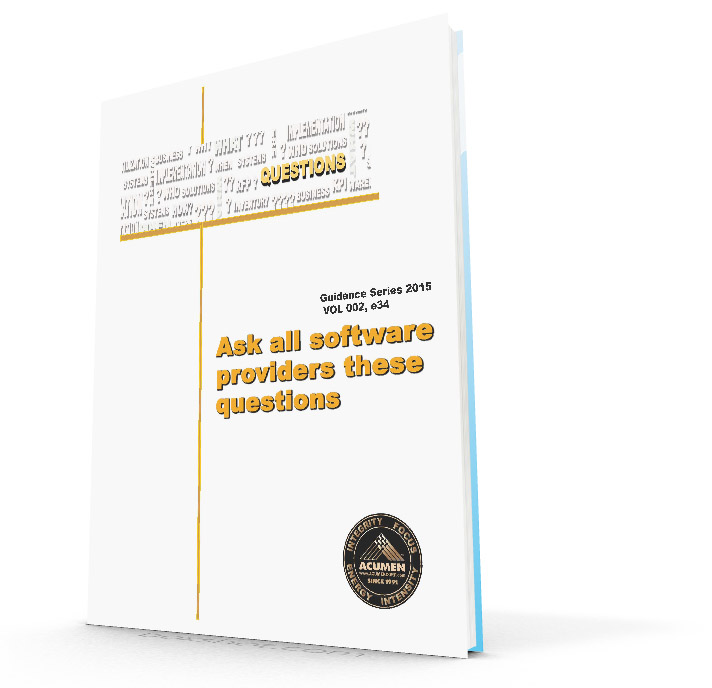
If any of you have followed my blogs or seen me speak at a conference you might have noticed that I hate acronyms. It’s a pity too, because our industry would seemingly grind to a halt without them. ERP, CRM, SaaS, AI, SAP….you get the picture. Quite frankly, I’m somewhat partial to SAP but am tired of explaining where that particular acronym came from. Just to save you asking the answer is That’s Systems, Applications and Products in English.
Lately another acronym has appeared…IoT. That’s short for the Internet of Things. It refers to the inevitable marriage of devices to the all powerful internet. An immediate example of IoT is Alexa, that little talking (and apparently listening) device that has been in the press lately accused of spying on its owners. Can’t wait to see how that shakes out.
But in our world we believe there will be practical benefits derived as IoT matures and more fully integrates with ERP systems (oh, sorry, Enterprise Resource Planning for the uninitiated). ERP systems are typically deployed to provide end to end flow of an organization‘s information and bring the tools to capture and analyse that information to those who need it. Whether you are the CEO or the Production Planner, you need to be able to rely on the information your system provides to make timely and informed decisions. To a large degree that information is entered somewhere along the line. Sales orders entered can be sliced and diced and ultimately provide the raw data to build products in the manufacturing plant.
In recent years experts have pointed out that relying upon people to provide all the information needed to run a successful enterprise is an iffy proposition at best. The more useful information that can be gathered from devices that are interacting with the ERP system the more reliable it becomes. One example is the interface of manufacturing equipment to the main software system thereby making the tracking of maintenance data and even capacity more fluid.
As time goes on predictions are that so called back office systems will be extended through the internet to provide direct interaction with customers and vendors. The next generation of ERP systems may be able to monitor inventory levels of key customers, for instance, by reading data by warehouse bin location to trigger appropriate and pre-approved restocking. Next generation ERP systems may also use certain aspects of social media to analyse buying trends in real time and notify decision makers so that business plans and even product development can evolve quickly.
Forward thinking managers and entrepreners will need to monitor these developments closely and be prepared to take advantage of this important technology. Our partner, SAP, is a market leader in IoT readiness and we’re prepared to help you stay ahead of the curve. Send us a note at letstalk@ACUMENcorp.com and let us know how we can help. Also, visit us at www.ACUMENcorp.com for more information on the powerful SAP Business One suite.
Yes, folks, IoT goes well beyond Alexa and may well be one of the few acronyms I can actually get excited about.
Just sayin.


